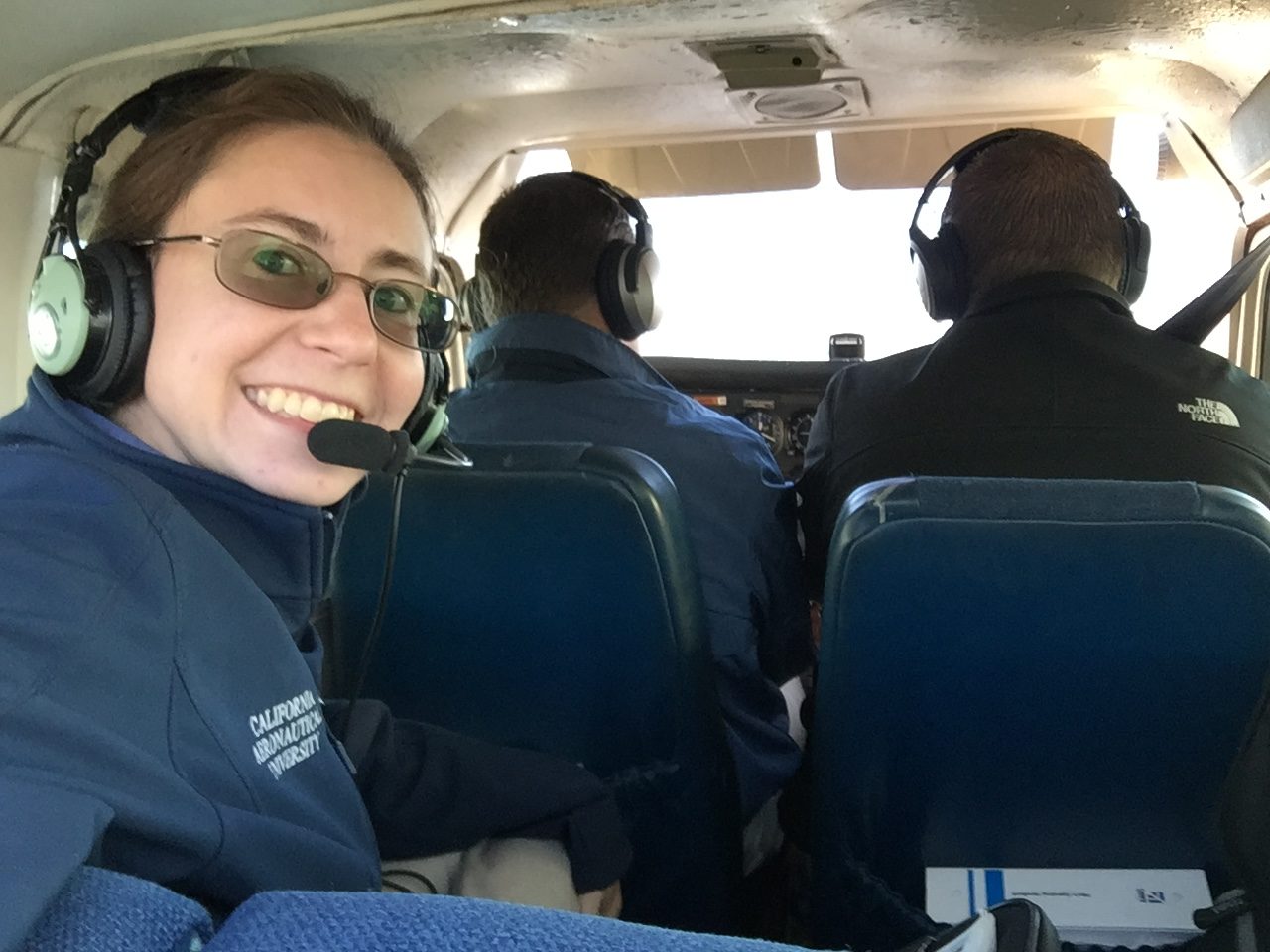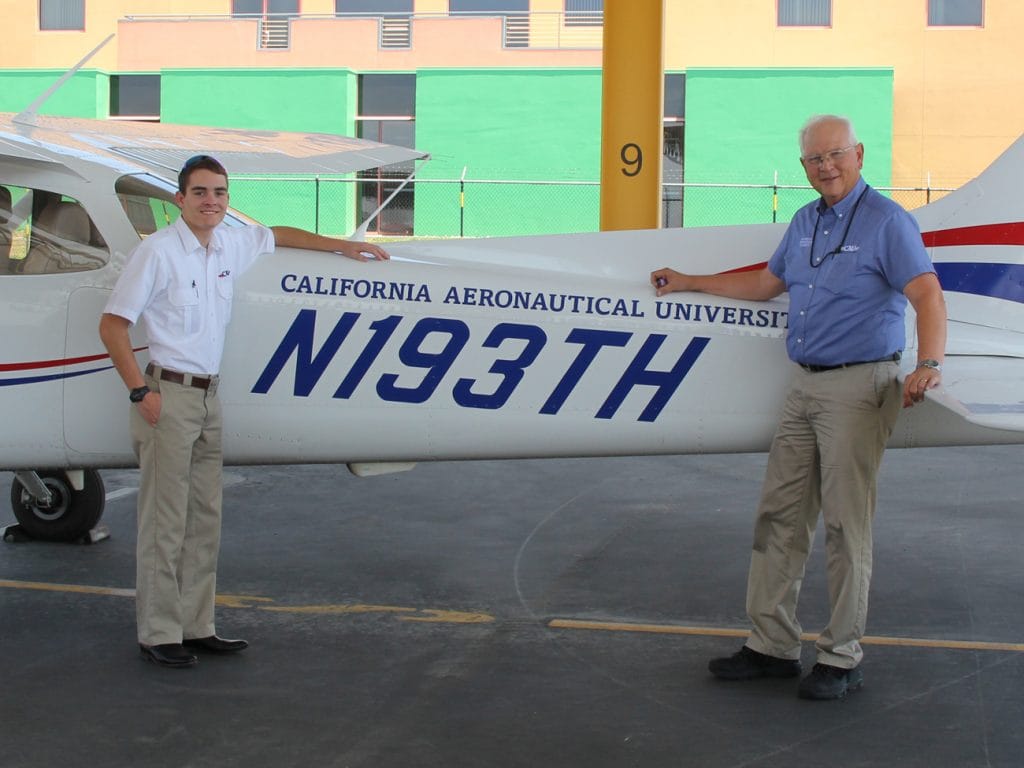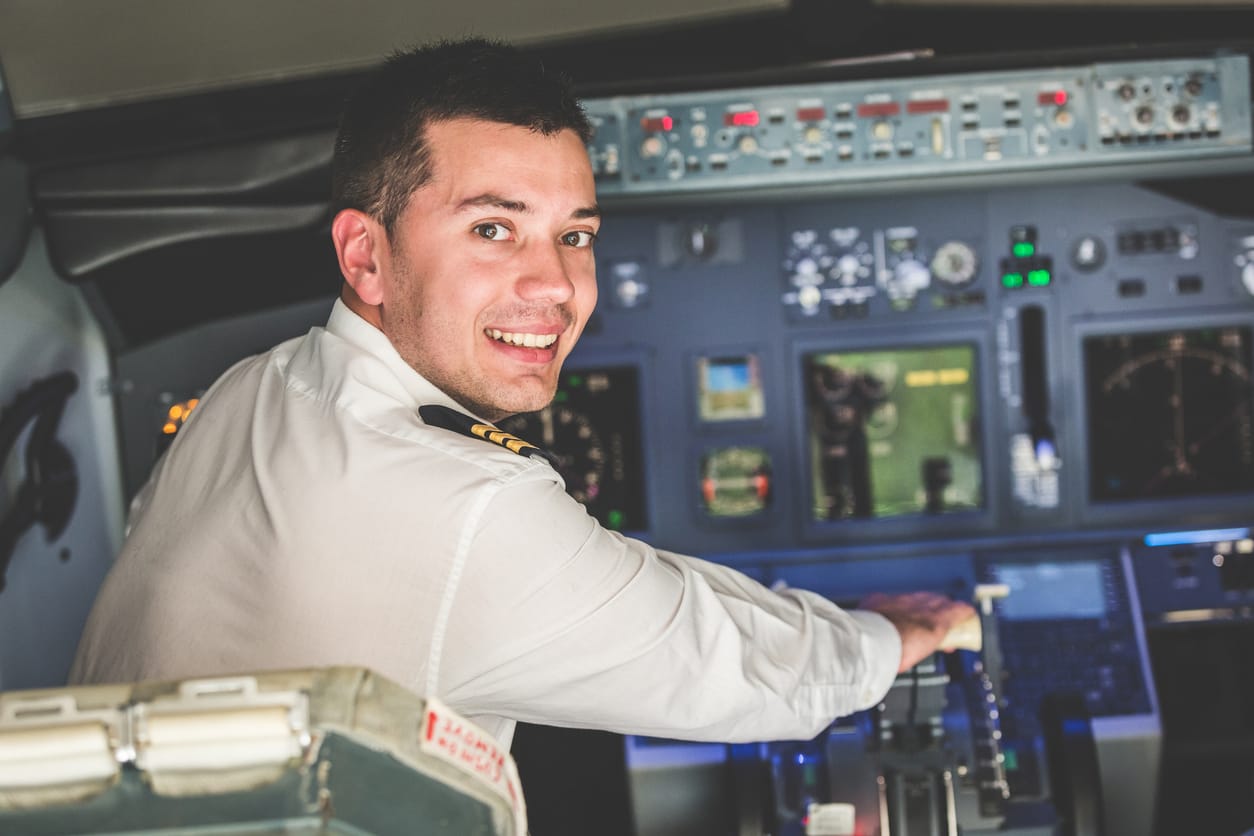[lwptoc numeration=”none” title=”CONTENTS:” titleFontSize=”30px” itemsFontSize=”19px”]
When a professional pilot is asked who helped him or her the most along the way, the answer is most often a certified flight instructor (CFI.) Great flight instructors have many qualities, but the most important one is that he or she is invested in his or her students.
Commitment to service leads to all other good CFI qualities. Sometimes it might be necessary for a student to speak with several different flight instructors to find one with whom he or she feels comfortable. Sometimes a flight school employs many CFIs, and a good combination of a number of different instructors can make for the best overall educational experience.
Whether you are a CFI or a student seeking the person to whom you will entrust your flight training, here are some traits to look for.
1) They Show Integrity and Are Not Just “Building Time”
It is true that many flight instructors take on the position as a CFI as a waypoint. Most do not have an entire career as a flight instructor in mind, and are acting as CFIs to accumulate the required number of hours which insurance agencies or airlines demand before accepting an application. However, this should not mean the CFI is simply jogging in place for his or her own benefit.
A strong certified flight instructor understands that the information he or she is passing on could be lifesaving. It could mean the difference between passing a check ride or another round of study. Good CFIs understand the tremendous responsibility they have in tending the flame of their students’ interest. When a student pilot is demoralized, upset, angry, or unsure, the CFI’s honesty and encouragement are priceless. Many an aviation career has been preserved by a motivational CFI who understands that a few bad flights doesn’t necessarily mean that a person “just wasn’t cut out to be a pilot.” It’s also important to carefully caution a student who is unnecessarily overconfident.
Safety is paramount; certified flight instructors have their students’ best interests in mind, and will not push a check ride if the new pilot is not ready. Nor will they allow a client to sink into despair after an error or rough day in the cockpit. They understand themselves not only as a teacher and flight school employee, but a coach and “reality check” as well. This involves accepting personal responsibility for all aspects of the job.
2) Strong Communicator
It can be easy for pilots to launch into “pilot speak,” which is rife with acronyms. These exist because they are an easy and quick way to pass along highly technical information. In addition, it simply sounds cool and is a fast route to creating a sense of kinship amongst members of the aviation community. However, that does not mean a student pilot can follow. He or she might be learning the language, or could misinterpret the rapid-fire information.
In addition, the strong CFI understands the importance of speaking at a level at which the student can best understand him or her. A 70 year old grandmother who is a PhD might require a different communication style than a 16 year old who has not cracked a single book. A good CFI understands that each individual learns differently and works to communicate in the best way possible. Sometimes, communication does not just involve spoken words. It can also mean visual learning or hands on projects.
However, strong communication goes in more than one direction.
3) Strong Listener
The best flight instructors have good people skills. This involves understanding what motivates a student to learn how to fly, and reminding the student of this when he or she feels discouraged. The CFI cannot learn how to best communicate with his or her students without listening carefully.
This goes beyond basic communication skills such as speaking clearly and effectively. The strong CFI will “listen beyond listening.” That involves hearing what a student has to say beyond the words he or she speaks. Sometimes that means understanding that when a student says “everything is fine” but seems unusually quiet or sad, there might be more to the situation. Professionalism is a must, but when a student has a judgement lapse, the CFI should notice.
Listening also involves watching the student to ensure that he or she is absorbing lesson plans and technical information. When a CFI listens carefully and patently, he or she can ensure whether or not it is in everyone’s best interest to move to other topics or to repeat information and answer questions. Sometimes this involves reminding a student of his or her goals in flight training, or trying a new way to learn.
Being a strong listener also means that a CFI does not impose his or her goals or assumptions about aviation on a student. Just because a CFI dedicates his or her life to aviation, he or she should still have respect for a student who wants to learn how to fly for fun, or who has other life priorities. Certified flight instructors understand that their role is to help their student to stay on track and encourage.
4) Knowledgeable
There are may aspects to being knowledgeable. Good flight instructors possess the technical knowledge required to offer an effective learning experience. This involves not only being a licensed CFI, but also one who has experience and can pass that knowledge on to others. They are able to effectively help student pilots past their fears or knowledge blocks.
Sometimes students experience learning plateaus. If a CFI knows how to work past this and help find ways for them to continue taking lessons, that can be just as important as the actual knowledge he or she is passing on. It can be frustrating for students if they come to the first few lessons eagerly and with technical information they may have gathered before starting formal flight education. When students begin their lessons on fire but certain technical aspects of their education discourage them, the strong CFI can help the client navigate.
Ready to soar in your aviation career?
Mr. Matthew A. Johnston has over 23 years of experience serving various roles in education and is currently serving as the President of California Aeronautical University. He maintains memberships and is a supporting participant with several aviation promoting and advocacy associations including University Aviation Association (UAA), Regional Airline Association (RAA), AOPA, NBAA, and EAA with the Young Eagles program. He is proud of his collaboration with airlines, aviation businesses and individual aviation professionals who are working with him to develop California Aeronautical University as a leader in educating aviation professionals.







